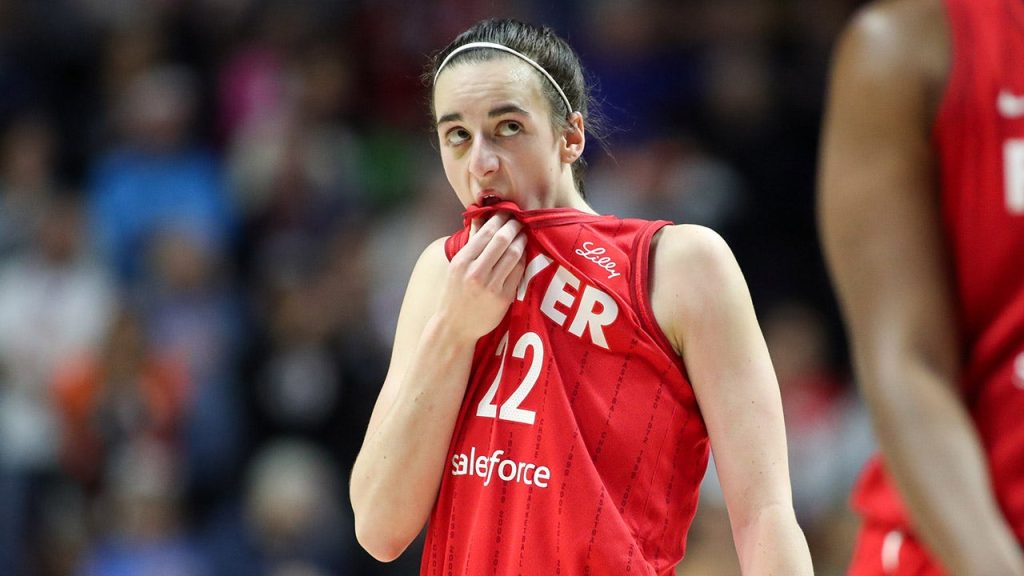WNBA rookie sensation Caitlin Clark has made a significant impact on the league in her first pro season, drawing in new followers and helping break attendance and TV ratings records. However, Clark has spoken out against the prejudicial comments and threats directed at players, coaches, and other figures in the league. She believes that anyone engaging in such behavior is not a true fan, but rather a troll, and is adamant that there is no place for racism, disrespect, or hurtful comments in the league. Connecticut Sun star Alyssa Thomas has also been vocal about the racism she has faced from fans, calling for a more inclusive and respectful fan base in women’s basketball.
The issue of race and racism has become a prominent topic surrounding Clark, with the rookie having been on the receiving end of racially charged comments from fans and media personalities. ESPN’s Pat McAfee referred to Clark using a derogatory term, while “The View” host Sunny Hostins suggested that Clark’s popularity was due to white privilege. Additionally, opposing players, such as Angel Reese, have claimed to be the targets of racist attacks from Clark’s fans. Reese, in particular, has spoken out about the online harassment she has faced, which intensified after her college team defeated Clark’s Iowa in the NCAA championship game. Reese’s experience highlights the need for a more respectful and inclusive atmosphere in women’s basketball, free from racism and discrimination.
Barstool Sports founder Dave Portnoy reposted a video of Reese’s celebration after defeating Clark in the championship game, labeling her as “classless.” This post received significant views, leading to further attacks on Reese during the 2024 tournament. Reese and her teammates, including Hailey Van Lith, have blamed racism for the treatment she has received, with Van Lith stating that the comments made towards Reese were racist. In response, DiJonai Carrington, who had previously criticized Clark for not addressing racism among her fans, poked Clark in the eye during a game, highlighting the tensions that exist within the league.
The issue of racism in women’s basketball extends beyond individual players, as it reflects broader societal issues that need to be addressed. Clark and other players have called for a more respectful and inclusive fan base, free from racism, bigotry, misogyny, and other forms of discrimination. The WNBA has taken a stand against racist, derogatory, and threatening comments directed at players, coaches, and other figures in the league, reinforcing the importance of creating a safe and welcoming environment for all participants. It is essential for fans, media, and stakeholders to support and uplift women’s basketball in a positive and constructive manner, promoting diversity, equity, and inclusion within the sport.
Moving forward, it is crucial for the WNBA and its players to continue advocating for racial equality and social justice, both within the league and in society at large. By addressing and condemning racism and discrimination, the league can foster a more inclusive and respectful environment for everyone involved. Players like Caitlin Clark and Angel Reese, who have experienced firsthand the impact of racism in women’s basketball, have the opportunity to use their platforms to raise awareness and promote positive change. With collective efforts from players, fans, media, and league officials, women’s basketball can thrive as a diverse and welcoming community that celebrates the talents and achievements of all its participants.


